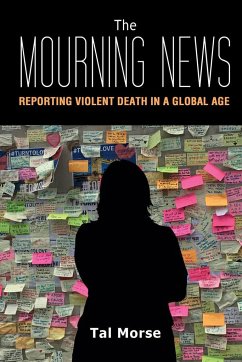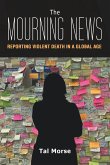A conventional wisdom in media studies is that "when it bleeds it leads". The media love violence and from the newsroom perspective, negative news is good news. Violent death often makes it to the headlines, and mass violent death events often become media events that receive immediate continuous attention worldwide. However, reporting violent death is not only about sending information, but also about the maintenance of society. News about violent death functions as media rituals which elicit grief and inform a sense of care and belonging. Accordingly, this book takes a broader sociological and anthropological approach to considering the role of death and the media in organising social life in a global age. Based on literature on solidarity and social cohesion, death rituals, media rituals, and journalism studies, this book examines whether and how the performance of the media at the occurrence of mass violent death events informs solidarity and interconnectedness on a cosmopolitan level.
The book develops the analytics of grievability as an analytical framework that unpacks the ways in which news about death constructs grievable death and articulates relational ties between spectators and sufferers. The book employs the analytics of grievability in a comparative manner and analyses the coverage of three different case studies (terror attack, war and natural disaster) by two transnational news networks (BBC World News and Al-Jazeera English). This comparative analysis showcases the centrality of news media in selectively cultivating a sense of cosmopolitan solidarity in a global age.
The book develops the analytics of grievability as an analytical framework that unpacks the ways in which news about death constructs grievable death and articulates relational ties between spectators and sufferers. The book employs the analytics of grievability in a comparative manner and analyses the coverage of three different case studies (terror attack, war and natural disaster) by two transnational news networks (BBC World News and Al-Jazeera English). This comparative analysis showcases the centrality of news media in selectively cultivating a sense of cosmopolitan solidarity in a global age.
"The Mourning News is an original study that guides us through the complexities of witnessing mass death under conditions of mediatisation. As major broadcasters continue to play a key role in the reporting of distant disasters, Tal Morse's book reminds us that these broadcasters do not simply report on mass death but profoundly shape the ways our communities mourn together. More than this, it compellingly demonstrates that mediatised death does not only unite but also divides us. Rather than honouring our common humanity, it creates its own hierarchies of humanity by subtly proposing whose life matters and whose does not, in the global village."-Lilie Chouliaraki, Professor, Department of Media and Communications, The London School of Economics and Political Science







